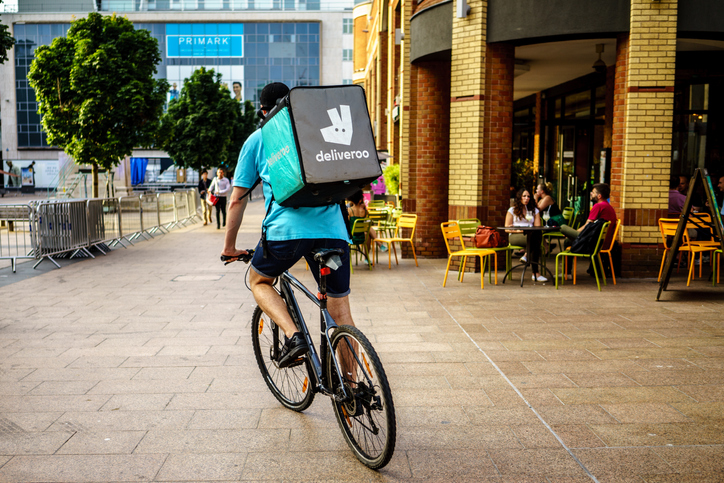Deliveroo riders lose Supreme Court case
The Supreme Court has confirmed that Deliveroo riders are not employees and therefore cannot benefit from trade union protections in what has been seen as a “win” for companies operating in the gig economy.
The emergence of the “gig economy” has put an emphasis on the issue of employment status. In the last 10 years, we have seen many gig economy companies defend tribunal cases on this issue, including Pimlico Plumbers, Addison Lee, Uber, Amazon and the online estate agent, Purplebricks.
The most recent Company in the spotlight is Deliveroo, after the Independent Workers Union of Great Britain (IWGB) supported a group of Deliveroo riders by applying to the Central Arbitration Committee (“CAC”) for formal union recognition, and the right to collective bargaining.
In 2017, the CAC held that Deliveroo riders did not meet the definition of “Workers” given in the Trade Union and Labour Relations (Consolidation) Act 1992 (TULRCA) and, as a result, Deliveroo riders were deemed not to be in an employment relationship with Deliveroo. This was particularly because the riders are under no obligation to provide services and have a virtually unlimited right of substitution.
In this latest case, the IWGB sought to assert that the relevant Deliveroo riders fell within the scope of Article 11 of the European Convention on Human Rights (ECHR) and, as such, were entitled to seek recognition of their union by Deliveroo, which would then afford them the benefit of collective bargaining (details on that below). For those unfamiliar with Article 11, this sets out an individual’s right to freedom of peaceful assembly and freedom of association with others, including specifically the right to join a trade union for the protection of their interests. If qualifying for this protection, there could be grounds for an application for Deliveroo to statutorily recognise IWGB, bringing its members those collective consultation rights.
The CAC rejected the union’s initial application, stating that, as the relevant riders were not workers under TULRCA, they were ineligible for trade union recognition and Article 11 would not cover them. IWGB appealed to the High Court, and subsequently to the Supreme Court, saying that Article 11 applied to “everyone” and was not, therefore, limited to employees. All courts agreed however that the scope of Article 11 ECHR did not extend outside of those in an employment relationship and accordingly dismissed the IWGB appeals. In their judgment, the Supreme Court was clear that the arrangement between Deliveroo and its riders is “fundamentally inconsistent with any notion of an employment relationship” and the CAC was within its right to reject the application for statutory recognition in this case.
What are collective bargaining rights?
Collective bargaining is negotiations relating to or connected with various aspects of an employment relationship. Through this, trade unions are able to make ‘collective agreements’ with employers in respect of many matters such as conditions of employment, allocation of work, discipline, and other matters.
It is easy to see why Deliveroo riders (and other gig economy workers) would want to benefit from the advantages that come with being a member of an employer recognised union. At present, however, in the absence of a successful statutory recognition application, an employer is free to choose whether to recognise a union and, if so, which union it wishes to recognise. It is worth mentioning that outside of this, Deliveroo already voluntarily agreed to recognise GMB Union last year.
What are the implications?
This judgment makes it clear (at least in the UK) that Article 11 does not create any automatic entitlement to collective bargaining rights for those who are not workers or employees which will be a relief to employers in the gig economy. It also reiterates the importance of personal service when determining whether an individual has “worker” status. This decision also confirms the approach taken by senior courts other similar cases, including Pimlico Plumbers.
It is not yet clear what effect this ruling will have on the wider gig economy with most cases being fact specific. The IWGB commented that whilst it was disappointed in the ruling, “couriers are joining the union in ever bigger numbers and building our collective power to take action and hold companies like Deliveroo to account”. It will be interesting to see if the IWGB will support any other gig economy workers on such pursuits following this defeat.

